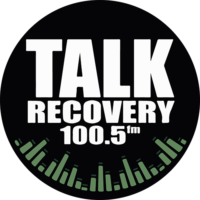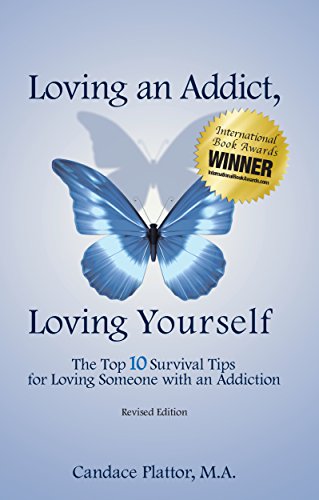Loving an Addict – Addiction Recovery
Talk Recovery RadioThis week on Talk Recovery Radio, Candace Plattor joins the show to talk about her book ““Loving an Addict, Loving Yourself: The Top 10 Survival Tips for Loving Someone with an Addiction”. Catch the full show on Facebook Live on Talk Recovery Radio’s Facebook page and on 100.5fm.
Loving an Addict
Loving someone who has an addiction problem is like being trapped on a roller-coaster of painful emotions.
You never know what’s going to happen from one moment to the next. It can be like living a re-occurring nightmare that you can’t wake up from.
The ongoing lies and the broken promises, the constant worry and fear, the dwindling hope that someday things will change…
Candace Platter is the author of “Loving and Addict, Loving Yourself: The Top 10 Survival Tips for Loving Someone with an Addiction”. She’s also an Addictions Therapist focused on family, and she’s 35 years clean from a 15-year opiate addiction. She knows firsthand the devastating effects addiction can have.
Family Involvement
“Addicts have a much better shot at recovery when family is involved.” In the 16 years Candace spent working on Vancouver’s Downtown Eastside she says that the people who had the support of families faired better but only when those family members were being supportive but not enabling. Addicts need their families to be emotionally healthy and stable to help them. If they’re not then it is more likely they’ll be enabling disguised as helping.
Many family members are often concerned that it is too late for their loved ones even if they do help. Candace says “As long as someone is still with us there’s still hope.” No one is ever too far gone to find recovery. And that should provide hope for many people who fear for their loved ones who are in the grips of addiction.
What is Enabling?
“We have an enabling society” says Candace. If we ask how that’s been working, the answer is not very well. We are enabling addicts to live in addiction longer, we are enabling people to avoid accountability and responsibility for their actions and this goes beyond just addicts We now have to ask “Are we willing to try something different?” Because nothing will change, if nothing changes, expect that it may get worse.
Enabling is when you do something for someone else that they can and actually should be doing for themselves. And you’re doing this on a fairly consistent basis. It’s often about “rescuing” someone and not allowing them to get hurt or hit rock bottom. This causes the people being “rescued” to not develop or feel their own resiliency and ability to do things for themselves. Because if you’re going to rescue me all the time, why would I put effort into growing my own skills in rescuing myself. “In addiction I was pretty lazy” say Candace, “of course I’d want you to do things for me.”
Where Does Addiction Come From?
Candace says that it is important for family to understand that addiction is about the pain that’s underneath everything. If those needs are not addressed then the addiction will persist no matter how much you try to help. “Until you resolve and heal the trauma that someone into addiction you can’t resolve the addiction itself.” And that looks like a lot of different things to different people. It may start with harm reduction and meeting people where they are without judgement or stigma. But Candace says she “would like to see people move out of that harm reduction phase and into abstinence” Because that is where she has seen the biggest improvements in building a better life for people.
Social Warriors and the lack of Real Help
There’s a large group of people now advocating for drug users and trying to end stigma and the oppression they face. These people are willing to scream loudly for drug users to get clean needles and free drugs, but they won’t make a sound to help people recover and abstain.
They’re even removing the words addict and recovery from their lexicon because they say it is stigmatizing for drug users. But it’s not their label. It’s a label adopted by addicts for addicts who want to get well and recover. These words are not stigmatizing, they are honest.
It seems like these “warriors” are not being compassionate but self-centred in their compassion. It is the idea that “I’m helping you so that I can feel good about what I’ve done, regardless of what you actually need.”
Safe Supply?
Thinking back to her own addiction Candace is concerned about some current measures to provide safe supply.
“Addiction is progressive, and I would need more and more of that safe supply to satiate that. Chances are I would be very addicted or even dead if safe supply had been available to me in my addiction.”
If all addictions are considered the same from a medical illness standpoint, it then begs the question “do you give more money to a gambling addict? More food to an overeater? Encourage more sex for a sex addict?” These are of course bizarre and insane scenarios, but why is it promoted to provide drug addicts with more drugs? To say that they aren’t the same and that substance use is somehow different from other addictions minimizes the effects of process addictions. There are Gambling Addicts who commit suicide because of their addictions, and the same can be said of other addictions as well. Safe Supply as a whole minimizes other addictions by saying we can prescribe our way out of some addictions but others are merely a matter of will power and moral fortitude.
Stuck in Addiction
“I don’t know of any addict who has enjoyed the life they’re in as an addict.” There is a strange movement at the moment where people are trying to say that people are enjoying their drug use or partying. Partying is when you start using drugs, maybe, right at the very beginning. You’re with other people having a good time. But it doesn’t take long for people to not be partying anymore. The horrible life that then develops is something that no one wants. No one wants to be homeless, no one wants to be overdosing n the street multiple times a day.
These people are stuck in a spiral of addiction where they are dependent on drugs to numb out the pain of their lives. If given the choice between that life and becoming drug free, it is a guarantee that everyone would want something different for themselves. But they continue to choose to stay in addiction because there are no supports available to help them stop. It’s important to clarify we are not
If you or someone you know needs help contact us for the next steps.
Candaces Social Media Pages
Website | Facebook | Twitter | Instagram | LinkedIn
Listen and Subscribe
Talk Recovery airs live every Thursday at noon on 100.5 FM, Vancouver Coop Radio. The Last Door produces this weekly radio show discussing the many pathways to addiction recovery. To end stigma we must continue to talk about recovery. Talk Recovery is in its 7th Season, Hundreds of guests, thousands of listeners, thank you. Show ideas? Email community@lastdoor.org
Powered by #NewWestRecovery













